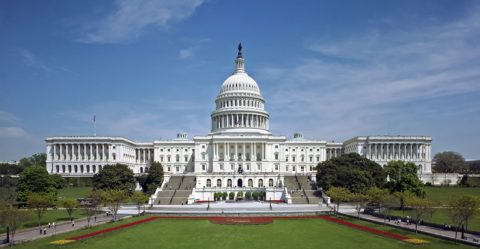If one wants to understand why city dwellers have a peculiarly statist politics, spend time in a big city subway system. For the people in the city, government services are essential for living. They depend on the subway, the trash collection and the police department. The city depends upon this organic relationship between the state and the citizens. That does not exist in the suburbs or the country. There’s a comfort that comes from the daily interaction with the state. Anyone who questions that relationship is suspect.
The Z Man, “Never Newark Nights”, The Z Blog, 2018-06-06.
September 22, 2020
QotD: City dwellers and the state
July 30, 2020
“Muzzling” scientists only ever happens under Conservative governments…
… so even though the circumstances might look remarkably similar to the layman’s eyes, Justin Trudeau can’t possibly be accused of doing the same thing as that evil, anti-science Stephen Harper:

Prime Minister Stephen Harper speaking at the Annual Meeting 2012 of the World Economic Forum at the congress centre in Davos, Switzerland, January 26, 2012.
World Economic Forum photo via Wikimedia Commons.
In fact, Grant Robertson reports, the Trudeau regime effectively shuttered a small, cheap (less than $3 Million dollars ~ petty cash in Canada’s government) research and early warning team called the Global Public Health Intelligence Network (GPHIN) which
was among Canada’s contributions to the World Health Organization, and it operated as a kind of medical Amber Alert system. Its job was to gather intelligence and spot pandemics early, before they began, giving the government and other countries a head start to respond and – hopefully – prevent a catastrophe. And the results often spoke for themselves.
Unfortunately, by the time the COVID-19 pandemic was getting started, just when the GPHIN should have provided “early warning,” it had been told, by the Trudeau regime, to focus on domestic issues. But global pandemics don’t often start in Canada, do they? The GPHIN sifted through data from around the world, often from places like China, Iran and Russia which hide or manipulate medical information, conducting something akin to military reconnaissance so that Canadian (and global (WHO)) officials could “see” what might be headed our way.
Did Justin Trudeau give the order to “muzzle” the GPHIN scientists? No, of course not … no more than Stephen Harper gave the order to “muzzle” scientists in Environment Canada. The decision to “refocus” the GPHIN on useless, domestic busywork was likely made by an Assistant Deputy Minister who was acting on yet another demand from the Treasury Board Secretariat to justify every programme dollar … again.
You should be glad that the Treasury Board Secretariat casts a sceptical eye on every single government programme and is a constant thorn in the side of operational people (like I was when I was serving and like the GPHIN folks were, too). They, skilled, hard-working civil servants, are just trying to ensure that your tax dollars are not being wasted. They are good people doing good work. But sometimes the wheat gets tossed away with the chaff. That appears to have been the case with the GPHIN. In retrospect, it seems almost criminally stupid to have deprived Canada of a valuable medical reconnaissance agency just because there had not been an “attack” recently. But that appears to have been the bureaucratic justification ~ it’s like me saying that since my house hasn’t burned down recently we should disband the fire department.
Did Justin Trudeau muzzle scientists? No.
Did Justin Trudeau’s government disable a valuable (and cheap) “early warning” system just to make its own wild spending look a little less careless? Yes, that’s what the Globe and Mail‘s investigation says ~ and we have paid a horrendous price in lives for that decision.
This story, it seems to me, is very much like the “Harper muzzles scientists” stories from a few years ago … but minus the massive media attention. It appears very evident, from Mr Robertson’s investigations that bureaucrats, acting on their own, internal priorities, emasculated the GPHIN just when we needed it most. That, bureaucratic action, was I believe what was, mainly, behind the “Harper muzzles scientists” stories, too. But in the 2010s much of the mainstream media was in a sort of undeclared war against Stephen Harper and so the claims of climate activists became “news” and opinions were treated as facts.
June 30, 2020
March 4, 2020
March 3, 2020
QotD: Public service and competitive private enterprise
Anyone who deals with the general UK public (coercive) sector regularly, knows it is a cesspit of laziness, incompetence, arrogance and corruption, riddled with civil servants that are neither civil nor servants.
And I’m not suggesting that the levels of corruption and incompetence are comparable to those found in third world hellholes. A local official in your county council is very unlikely to demand a bribe and then have your daughter raped by his buddies if you decline. He’s especially unlikely to get away with it, and then douse your family in petrol and burn them alive if you complain – those are the levels of corruption found elsewhere in the world, so we need to retain some perspective here.
But those countries have not benefited from a thousand years of sacrifice to earn us a culture that has learned through bitter experience how to run a country. Our civil servants should be performing at the highest standard and be the best in the world, because what they inherited was a culture that conquered that world, and brought civilisation and progress (often at great cost) to every corner of it.
That they have fallen from these heights and now occupy such low places should be a matter for great national shame. And yet they continue to lord it over those they pretend to serve – try calling your local planning department if you want instruction in how supercilious a local functionary feels able to be when speaking to those he claims to serve. If you just want them to do their job, you better be prepared to beg.
Whereas on the flip side, we might agree that the private (voluntary) sector is largely filled with honest and hardworking people and entrepreneurs, but there are crony capitalists out there too.
Your local butcher and baker (those that have survived the regulatory avalanches under which the crony capitalists have begged their pet politicians to bury them) remain staunch servants of their customers (through regard to their own interests), whereas oligoplists (supermarkets, telcos, insurance companies, banks, energy suppliers or transport companies) deliver to us just what the monopolists of government do – an icy contempt that would soon turn to withering small arms fire if the laws allowed it.
Alex Noble, “Corruption In The Coercive And Voluntary Sectors: Rotten Apples? Or The Tips of Icebergs?”, Continental Telegraph, 2019-12-02.
February 20, 2020
QotD: Preventing bureaucratic mission creep
The mission creep that is the effect of those not slumbering in meetings and thus adding another bright idea to the tasks the organization attempts is not restricted to the public sector.
Private companies are just as vulnerable. However in that private sector we have a mechanism by which the seemingly inevitable bureaucratization is dealt with. Once it happens, the organization goes bankrupt and is removed from the scene. What we need is a similar system to deal with this process in the public sphere.
I don’t, given the above, find it at all remarkable that the WTO is regarded as succumbing to these forces, nor the UN, Amnesty, the European Union or even our own domestic governments (just how did the interstate commerce clause become a justification for Congress to restrict something that is not interstate and is not commerce?). I think it inevitable.
Various solutions appear to be available, the French one might be an example. Put up with it for 50 years then have a revolution and start again. Perhaps the answer is never to allow the public bodies to have much power in the first place, a solution that hasn’t really been tried anywhere. The Italian one? Let the system carry on adding ever more layers but ignore it? Stalin’s? Every 15 years or so shoot the bureaucrats?
All such methods have their attractions and their faults but a solution we do need to find. For one of the lessons I take from the history of the 20th century is that we don’t actually want to be ruled by those who stay awake in committee meetings.
Tim Worstall, “‘Any Organization Will, In the End, Be Run By Those Who Stay Awake in Committee'”, Ideas in Action, 2005-06-23.
November 27, 2019
The Deep State versus the President
David P. Goldman reviews a new book by Andrew McCarthy on the ongoing conflict between the elected President of the United States and the permanent bureaucracy:

Donald Trump addresses a rally in Nashville, TN in March 2017.
Photo released by the Office of the President of the United States via Wikimedia Commons.
America’s Central Intelligence Agency in concert with foreign intelligence services manufactured the myth of Donald Trump’s alleged collusion with Russia, argues Andrew McCarthy, a distinguished federal prosecutor turned public intellectual.
A contributor to Fox News and a prolific writer for The National Review and other conservative media, McCarthy well knows how to build a case and argue it before a jury. His latest book Ball of Collusion should be read carefully by everyone with an interest in American politics. It is exhaustively documented and brilliantly argued, and brings a wealth of evidence to bear on behalf of his thesis that an insular, self-perpetuating Establishment conspired to sandbag an outsider who threatened its perspectives and perquisites.
From my vantage point as an American, the constitutional issue is paramount: The American people elected Donald Trump, and it is horrifying to consider the possibility that a cabal of unelected civil servants supported by the mainstream media might nullify a presidential election. That is why I support the president unequivocally and without hesitation against his detractors.
But this sordid business has deep implications for America’s allies as well as her rivals. Trump is not a popular president overseas, except in Poland, Hungary, and Israel. In the eyes of polite opinion, McCarthy writes, “Donald Trump was anathema: a know-nothing narcissist – as uncouth as Queens – riding a populist-nationalist wave of fellow yahoos that threatened their tidy, multilateral post-World War II order.” China (and not only China) views Trump as a bully who presses American advantage at the risk of disruption to the global economy.
Donald Trump has one quality for which the rest of the world should be grateful: He really does not care how China, Russia, or any other country manages its affairs. By “America First,” he simply means that he cares about what happens in America, and is incurious about what happens outside America unless it affects his country directly. That stands in sharp contrast to view of all the wings of America’s political Establishment – progressive, “realist” and neoconservative – who believe that America should bring about the millenarian End of History by bringing democracy to Iraq and Afghanistan, by expanding NATO into a giant social-engineering project, by pressing China to transform itself into a Western-style democracy, and so forth.
McCarthy reports in persuasive detail how the spooks set up the president. There is more to be said, though, about why they did it. I will summarize McCarthy’s findings, and afterward discuss the motivation.
November 23, 2019
Sir Charles Trevelyan, head of the Irish relief efforts during the potato famine, and creator of the modern civil service
By happenstance, after posting the OSP video on the history of Ireland, a post at Samizdata covered one of the questions I had from OSP’s summary, specifically that the famine was worsened by British “laissez-faire mercantilism”. Mercantilism is rather different from any kind of laissez-faire system, so it was puzzling to hear Blue link them together as though they were the same thing. Of course, I live in a province currently governed by the Progressive Conservative party, so it’s not like I’m unable to process oxymorons as they go by…
Anyway, this post by Paul Marks looks at the man in charge of the relief efforts:
Part of the story of Sir Charles Trevelyan is fairly well known and accurately told. Charles Trevelyan was head of the relief efforts in Ireland under Russell’s government in the late 1840s – on his watch about a million Irish people died and millions more fled the country. But rather than being punished, or even dismissed in disgrace, Trevelyan was granted honours, made a Knight Commander of the Order of the Bath (KCB) and later made a Baronet, not bad for the son of the Cornishman clergyman. He went on to the create the modern British Civil Service – which dominates modern life in in the United Kingdom.
Charles Edward Trevelyan (contemporary lithograph). This appeared in one of the volumes of “The drawing-room portrait gallery of eminent personages principally from photographs by Mayall, many in Her Majesty’s private collection, and from the studios of the most celebrated photographers in the Kingdom / engraved on steel, under the direction of D.J. Pound; with memoirs by the most able authors”. Many libraries own copies.
Public domain, via Wikimedia.With Sir Edwin Chadwick (the early 19th century follower of Jeremy Bentham who wrote many reports on local and national problems in Britain – with the recommended solution always being more local or central government officials, spending and regulations), Sir Charles Trevelyan could well be described as one of the key creators of modern government. If, for example, one wonders why General Douglas Haig was not dismissed in disgrace after July 1st 1916, the first day of the Battle of the Somme when twenty thousand British soldiers were killed and thirty thousand wounded for no real gain (the only officers being sent home in disgrace being those officers who had saved some of them men by ordering them stop attacking – against the orders of General Haig), then the case of Sir Charles Trevelyan is key – the results of his decisions were awful, but his paperwork was always perfect (as was the paperwork of Haig and his staff). The United Kingdom had ceased to be a society that always judged someone on their success or failure in their task – it had become, at least partly, a bureaucratic society where people were judged on their words and their paperwork. A General, in order to be great, did not need to win battles or capture important cities – what they needed to do was write official reports in the correct administrative manner, and a famine relief administrator did not have to actually save the population he was in charge of saving – what he had to do was follow (and, in the case of Sir Charles, actually invent) the correct administrative procedures.
But here is where the story gets strange – every source I have ever seen in my life, has described Sir Charles Trevelyan as a supporter of “Laissez Faire” (French for, basically, “leave alone”) “non-interventionist” “minimal government” and his policies are described in like manner. […]
Which probably explains why Blue used the term in the previous video. Then these “laissez-faire” policies are summarized, which leads to this:
None of the above is anything to do with “laissez faire” it is, basically, the opposite. Reality is being inverted by the claim that a laissez faire policy was followed in Ireland. A possible counter argument to all this would go as follows – “Sir Charles Trevelyan was a supporter of laissez faire – he did not follow laissez faire in the case of Ireland, but because he was so famous for rolling back the state elsewhere (whilst spawning the modern Civil Service) – it was assumed that he must have done so in the case of Ireland“, but does even that argument stand up? I do not believe it does. Certainly Sir Charles Trevelyan could talk in a pro free market way (just as General Haig could talk about military tactics – and sound every inch the “educated soldier”), but what did he actually do when he was NOT in Ireland?
I cannot think of any aspect of government in the bigger island of the then UK (Britain) that Sir Charles Trevelyan rolled back. And in India (no surprise – the man was part of “the Raj”) he is most associated with government road building (although at least the roads went to actual places in India – they were not “from nowhere to nowhere”) and other government “infrastructure”, and also with the spread of government schools in India. Trevelyan was passionately devoted to the spread of government schools in India – this may be a noble aim, but it is not exactly a roll-back-the-state aim. Still less a “radical”, “fanatical” devotion to “laissez faire“.
November 19, 2019
No matter who you vote for the (permanent) government always gets in
Arthur Chrenkoff on the differences between the theoretical role of civil servants and what they actually do:

The western front of the United States Capitol. The Neoclassical style building is located in Washington, D.C., on top of Capitol Hill at the east end of the National Mall. The Capitol was designated a National Historic Landmark in 1960.
Photo via Wikimedia Commons.
Public servants consider themselves more intelligent and expert in their areas of competence than politicians. In many cases they are right. This only adds to the frustration. Because it’s not the job of public servants to make policy but to give advice to elected officials and to implement their decisions. And it certainly is not their job, if elected officials choose not to accept and act on that advice, to sabotage their efforts or even try to engineer the downfall of their political masters.
If you are a public servants who disagrees with the direction the politicians are taking, you have a simple, binary choice: you can clench your teeth, stay in your job and implement the politicians’ will or you can resign – at which stage you have every right as a concerned citizen to publicly campaign against people and policies you disagree with. There are more legitimate avenues of dissent and opposition outside than inside the system.
The ideal of the public service is a completely apolitical and impartial workforce, which faithfully assists government of the day in implementing its agenda, whatever that agenda might be. The reality is that while many bureaucrats are able to separate their personal beliefs from their professional duty, some can’t and won’t. For the reasons that are both obvious and unnecessary to go into detail here, public sector attracts those on the left, the way private sector attracts those on the right. Thus, left wing governments rarely encounter the problem of bureaucratic dissent, unless they really act out of the traditional left-wing box. The right wing governments, by contrast, face at best dutiful but unenthusiastic and sullen cooperation. There are no vast and organised conspiracies; this is a systemic phenomenon where organisations are required to do things that go against the conventional institutional wisdom and against the individual beliefs of the majority of members who shape the informal internal culture. This is the Shallow State. Bureaucracy will always cheer on the expansion of its numbers and powers and shriek at the prospect of shrinking the state. It will embrace and run with the policies it approves and stumble with the policies it doesn’t.
Forgetting the rank and file of the public service, which is unmovable and unchangeable, the reason why new governments enjoy the power of key appointments, including diplomatic ones, is not simply the patronage of rewarding supporters and the faithful but more importantly ensuring that the key administrative positions in bureaucracy are occupied by people who share their vision and can therefore be counted on to enthusiastically pursue the government’s agenda within the particular organisation. This, of course, only kicks the basic problem down the line, in that the top government appointees then have to struggle with the “permanent” employees on the levels below. The lower ranks might still succeed in frustrating their superiors, or worse, in “capturing” the political appointees by converting them to the institutional consensus. But for the government, having its own people in top positions is better than having no support at all. In an ideal world, of course, none of this would be necessary and happening because the impartial public service would be working well with whoever is in power. This is not an ideal world; certainly not for right wing governments. The Shallow State is always the reality. The Deep State is nothing more and nothing less than the Shallow State going well beyond the usual sullen uncooperativeness and taking a particularly strong stance against the government they disagree with. It’s a difference between passive resistance and active resistance.
It is not the job of bureaucracy to resist the government. Hence the current vogue for insubordination and sabotage is necessitating a rather radical redefinition of public service. Recently, we seem to have finally crossed the threshold from years of obfuscation (“The Deep State is a right wing conspiracy theory”) to acknowledging the reality (“The Deep State are patriots trying to protect America and the American people from the president”). But for all the talk about the supposed collusion, treason, crimes and corruption of the Trump administration, which could thus justify the resistance, the only thing that the endless agitation and investigation has succeeded in showing over the past three years is policy differences. Quite simply, the public service is vehemently opposed to the president’s views on a whole range of matters, and they are outraged that he has not followed their conventional wisdom.
November 15, 2019
“In a functioning system, the head of the government sets foreign policy and the diplomats enact it. So naturally there’s not a chance of that in Washington”
Mark Steyn on the foggiest of Foggy Bottom diplomatic bafflegab on the first day of the :
Yesterday I caught a bit of the impeachment theatre en route to a lunchtime speaking engagement. To be honest, if they’d come round and performed it live in my hotel room, I’d still have fled. If universally respected eminent lifelong career foreign-service bigshots Bill Taylor and George Kent are Adam Schiff’s star witnesses, their chief purpose seems to be to get Democrats pining for the charisma of Bill de Blasio and the self-effacement of John Kerry.
In a functioning system, the head of the government sets foreign policy and the diplomats enact it. So naturally there’s not a chance of that in Washington. When Taylor and Kent whine that there seemed to be a “shadow foreign policy”, the shadow is theirs; they spent a day testifying that everything had been going ticketty-boo for decades just as they’d always done things – and then Trump came along and took a different view. Oh, my! Anyone would think that, as Barack Obama once proposed, “elections have consequences”.
First up was George Kent, the “Deputy Assistant Secretary of State for Eastern Europe and the Caucasus”. He warmed up the crowd with some extensive biographical material about the “nearly sixty years” of George Kents (I believe he’s George III or some such) who have “chosen” to endow America with the blessings of their “public service”. It didn’t help that he wore a bow tie. Eventually he stopped talking about himself and started talking about Ukraine:
Our strategic aim for the entirety of my foreign service career is not possible without a Ukraine whole, free, and at peace, including Crimea and Donbas, territories currently occupied by Russia.
Crimea is, of course, familiar to anyone who’s read “The Charge of the Light Brigade”:
Theirs not to reason why
Theirs but to do or die…Or, in the case of low-level diplomats who’ve never had a single conversation with the President, theirs not to reason why, theirs but to do or tender their resignations after first ensuring that their pensions won’t be affected. Instead:
Into the valley of the SCIF
Rode the six hundred hearsay witnesses…As I said, any Tom, Dick or Harry can bandy Crimea, but it takes a career striped-pants Foggy Bottom public servant to toss in “Donbas” with gay abandon. It would have been interesting to see whether Adam Schiff or anyone else in the room could have found Donbas on a map. The odds of pinning the tail on the Donbas blindfolded are better. It’s bordered to the north, east and south-east by Russia, so it’s akin to the Russian foreign ministry regarding northern Mexico as a vital national-security interest of Moscow’s.
In fact, northern Mexico is a vital national-security interest of America’s, but, under the mass wankerization of public policy, Perma-Beltway cares more about the borders of Ukraine than it does about the borders of the United States.
October 25, 2019
Civil servants tend to be of the left … this should be no surprise to anyone
Arthur Chrenkoff on the political tendencies of people who work for the government:
You could believe the whole “protect[ing] the interests… of the American people” shtick if after all this time and the incalculable amount of energy and effort expended on bringing down the President, all those patriotic public servants have been able to show something – anything – for it. So instead of disinterested paragons of civic virtue, it increasingly looks like the federal bureaucracy is full of hard core progressives and liberals who can’t stomach a non-Democrat usurper who doesn’t share their values, ideas and objectives.
It’s not a shocking revelation that public service is overwhelmingly staffed by left-of-centre people. Government work attracts the left the same way that private sector and military attract the right. The left believes in the power of government to affect change and implement its vision. Even the spooks are no different. A couple of years ago I wrote briefly about the myth that the intelligence community is a hive of shady right-wing types. In reality, the CIA – just like the Department of Education – has always been a liberal institution. That so many people believe that the intelligence community is some sort of a vast-right wing conspiracy instead of another part of the liberal establishment, is a testament to the narrative power of the far-left, for whom indeed anyone to the right of selves is right wing, including everyone from John F Kennedy to Hillary Clinton.
Most public servants can be professional enough to work under any government, even if they would clearly prefer that government to be of the left – forever. But others can’t stomach working for people whom they believe not merely wrong but positively evil. The honourable thing to do in such circumstances, of course, is to resign; if you can’t in good conscience work to implement policies you strenuously object to, you should make room for someone who can. But why quit your often lucrative job and watch from the sidelines as the country is in your opinion going to hell in a hand basket, when you can stay on and try to sabotage the government and save the world? Thus you can convince yourself you are protecting the people, even if in reality it’s the people who voted in your new, unsavoury masters. It’s easy if you try; like so many others in the recent past you can argue that the people did not in fact elect the government, which is therefore illegitimate, or you can default to the standard left-wing position that the people don’t know what’s good for them, so their democratic choice as expressed at the ballot box has no decisive meaning. We know what’s best for everyone, hence taking a different position is equated to “the war on… expertise”.
It’s an interesting, if of course also self-serving theory, that public servants don’t work for the government of the day, but for “the people”. As Cottle’s logic demonstrates, it gives you a licence to essentially do whatever you want instead of what your political bosses tell you. The problem, as I mentioned above, is that “the people” don’t vote for bureaucrats, they vote for their elected representatives, based on which policy program they like best – or hate least. Seeing that we – still – live in a democracy, the people are given the opportunity to judge their politicians every few years. If they consider that their interests have been negatively affected by the executive’s excesses, they will vote somebody else in. The problem is that the progressives only like the people if the people agree with them. By and large, however, the people can’t be trusted; like children or mentally handicapped they need someone – like the government, or if the government is in hostile hands, the public service – to look after them. It’s the unspoken technocratic mantra and it justifies the existence of an in loco parentis state, deep or otherwise.
September 25, 2019
QotD: Big government is not human
An email from a correspondent, who is not in Guam, reminds me to remind gentle reader of a truth I take for self-evident, but perhaps others don’t. We personalize the State. I do myself, when I refer to it as Big Brother, Big Sister, Twisted Nanny, &c. But this is a conceit. As anyone caught in the jaws of Big Shark should realize, it doesn’t think like a human. It thinks more like a mechanism. Of course, when the mechanism has selected one’s own person for food — I am thinking here of the Revenue Department, but government agencies are all much the same — little can be done. One might beg for mercy, but the thing is not designed to dispense mercy. That is not its function. Its function is to absorb protein.
Guvmint agents themselves — the cells and their switches — are task-oriented. Each signed off his right to make humane judgements when he took the job.
We used to have reactionary courts, to restrain the creature. Now we have progressive courts, to urge it on.
Among the foibles of democracy, is the notion that “the peeple” are somehow in control. The people, however, consist of persons, with their quite various moral flaws, which tend to cancel each other. They elect politicians for show. This helps them put a human face on the enterprise, so they have someone to blame at the electoral intervals. It is true that a government with a majority and a will can alter the course of history: usually by putting more sharks in the tank. And that the policy wonks are, arguably, human. But they are cells themselves, within Leviathan.
We live, I say from time to time, in an age of “total war” and “total peace.” The one condition resembles the other: a command economy, focused on results. We have, as it were, totalitarianism with a human face. It is a kind of smiley face, painted on the tip of the missile.
David Warren, “Notes from the sheepfold”, Essays in Idleness, 2017-08-11.
August 19, 2019
June 4, 2019
What do you get for your tax money?
Alex Noble conducts a small experiment:

“Murderous Pothole”by samsaundersleeds is licensed under CC BY-SA 2.0
I suggest we stop thinking about taxes as paying for something useful – this type of thinking paralyses us and causes us to refuse to do that which needs doing. Because our taxes are supposed to pay for it.
We are no longer charitable, because our taxes pay for dole money.
We no longer look after the verge outside our homes, because our taxes are supposed to pay for a council worker with a strimmer.
We don’t repair potholes in our roads, because council workmen are supposed to fill them in.Just to check that last one, I contacted my local council.
“I was wondering if I could personally pay a local company to make repairs to the potholes that are causing damage to my car out of my money, and if so, would they be granted permission to close the road while my privately-funded repairs were being carried out?”
And they said…………
“It would not be possible for you undertake these repairs, and no permission would be given to close the road.”
So I proposed I make a payment to them, to be spent on repairing the road:
“…could I instead make a voluntary tax contribution on the condition the money is to be spent on these road repairs?”
And they said…
“…the County Council will not accept payment from members of the public for the provision of highway maintenance over and above that already collected via the Council Tax”
I made one last attempt…
“I have obtained quotes for the work which are acceptable to me and my neighbours – is there really no way we can as private individuals simply pay for the repairs to our road?”
They responded:
“…it is not possible to accept any from of funding other than that accepted via the Council Tax and Central Government.”
So I just went out and bought a bag of sand and pounded it into the hole one night. A temporary fix, admittedly.
£5 of sand and five minutes of my time.
No doubt the council are scouring CCTV as we speak in an attempt to bring to justice the criminal that repaired the road.
May 18, 2019
Justin Trudeau expects more than just ordinary loyalty from civil servants
In the Post Millennial, Mika Ryu summarizes Trudeau’s un-statesman-like behaviour through the Admiral Norman persecution — including his decision not to be in the house when a motion was passed apologizing to Norman — and offers an explanation for Trudeau’s oddities:
… according to a Globe and Mail report published around 6am on Friday by their Ottawa Bureau Chief Robert Fife, who also broke the SNC-Lavalin story in February of this year.
In the new bombshell report, Mr. Trudeau is alleged to have been furious about the leak that prevented the Liberal government from cancelling a massive ship building contract that was already well on its way to being executed.
The prime minister is alleged to have felt “betrayed” by the leak, after “all he had done” for the public service after a decade under Harper. This is very similar to the reason why he yelled at MP Celina Caesar-Chavannes when she told him that she would not run for re-election.
It is becoming clear that defeating Harper has turned Trudeau into a hero in his own mind, for which the entire country and all of its citizen owe him an infinite debt.
It was already known that the Privy Council Office had called in the RCMP to investigate the person behind the collapse of a would-be sweetheart deal for the well-connected “Rockefellers of Atlantic Canada”. This was a very unusual move, which was supported by alleged “Irving’s Boy”.
It continues to paint a troubling picture of the prime minister, a man who perhaps might not have “been so forward” with his corruption if he knew that the national newspapers would report on it, even in the face of the state’s increasing use of sinister carrots and sticks in the run-up to the election.








